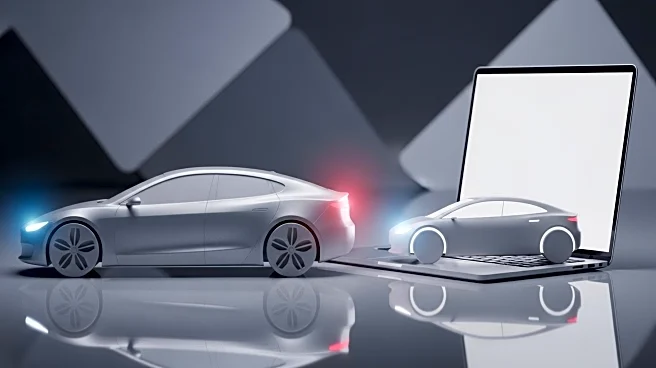What's Happening?
Bank of America has made several key adjustments to its stock ratings, reflecting shifts in market dynamics and company performances. The financial institution has reiterated its neutral stance on Tesla, citing disappointing European registration numbers. Despite the overall growth in battery electric vehicles (BEVs) in the region, Tesla's registrations have decreased by 33.6% year-to-date, with a 40% year-over-year drop in July. This suggests Tesla is losing market share to competitors with expanding BEV offerings. In contrast, Bank of America has upgraded Dell to a buy rating, highlighting the company's strong position in the artificial intelligence (AI) sector. Dell is expected to achieve long-term earnings per share growth of 15% over the next five years, driven by robust growth in AI servers. Meanwhile, Li Auto has been downgraded to neutral from buy due to anticipated slowing growth, as indicated by the company's guidance for lower sales volume and gross profit margin in the third quarter of 2025.
Why It's Important?
These rating adjustments by Bank of America have significant implications for investors and the companies involved. Tesla's continued struggle in the European market could impact its global market share and investor confidence, especially as competition in the BEV sector intensifies. Dell's upgrade reflects the growing importance of AI in driving corporate growth, positioning the company as a leader in this transformative technology. This could attract more investors looking to capitalize on the AI boom. On the other hand, Li Auto's downgrade highlights the challenges faced by Chinese electric vehicle manufacturers in maintaining growth momentum, which could affect their competitive edge and market valuation. These changes underscore the dynamic nature of the tech and automotive sectors, where innovation and market adaptation are crucial for sustained success.
What's Next?
Investors and market analysts will likely monitor Tesla's strategies to regain market share in Europe, possibly through new product launches or strategic partnerships. Dell's focus on AI could lead to further investments in technology development and potential collaborations with other tech firms. For Li Auto, addressing the factors contributing to its slowing growth will be critical, possibly through expanding its product line or enhancing its market presence. These developments will be closely watched by stakeholders to assess the long-term viability and growth prospects of these companies.









